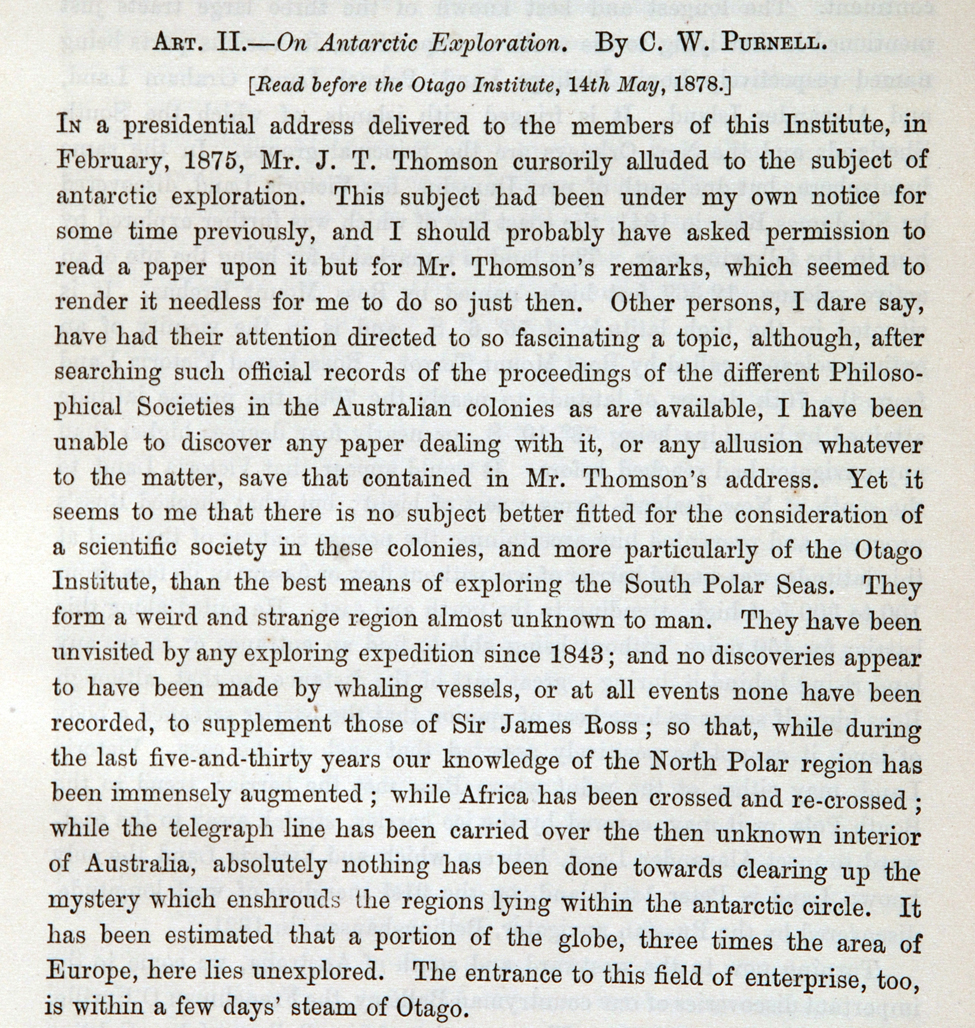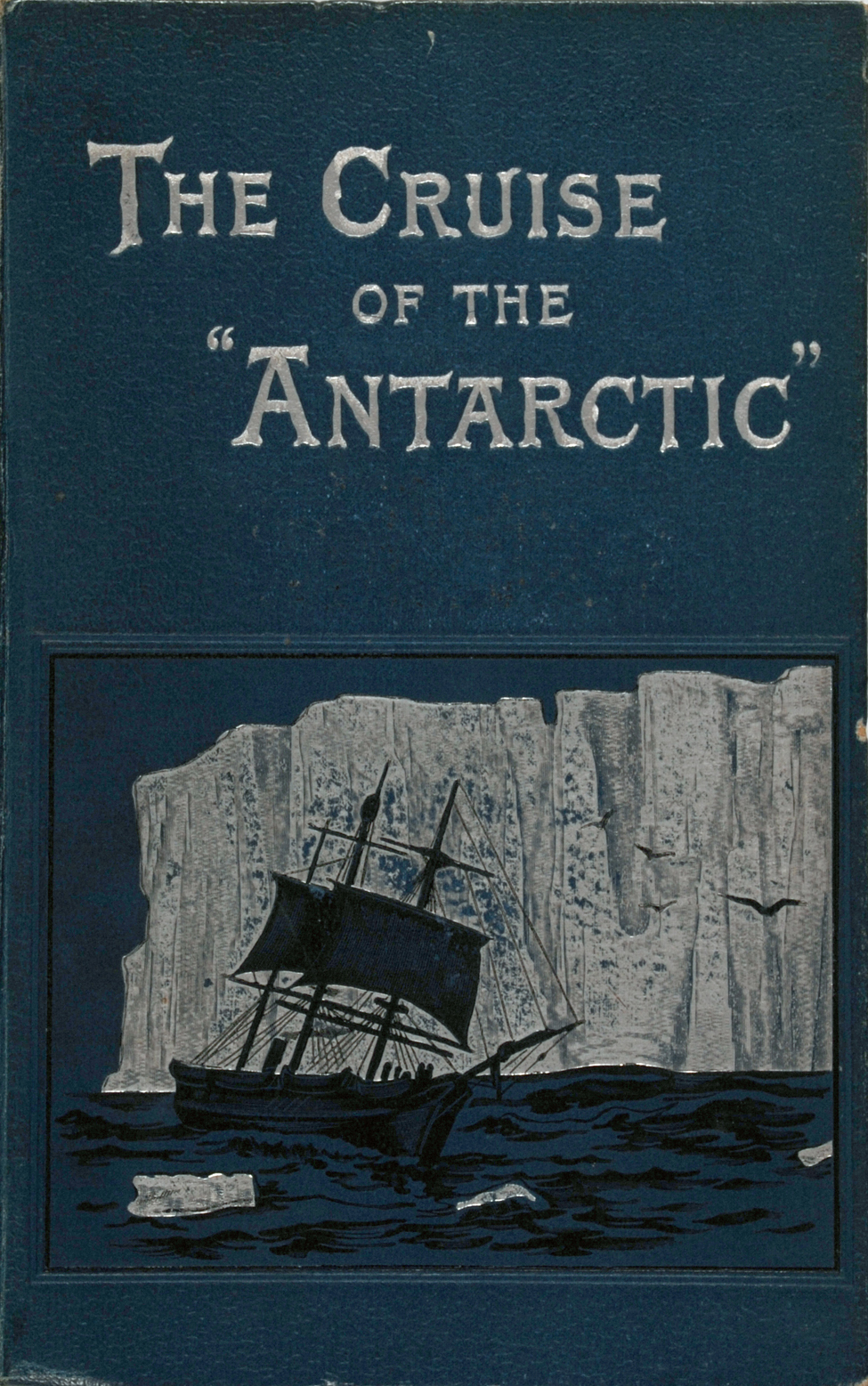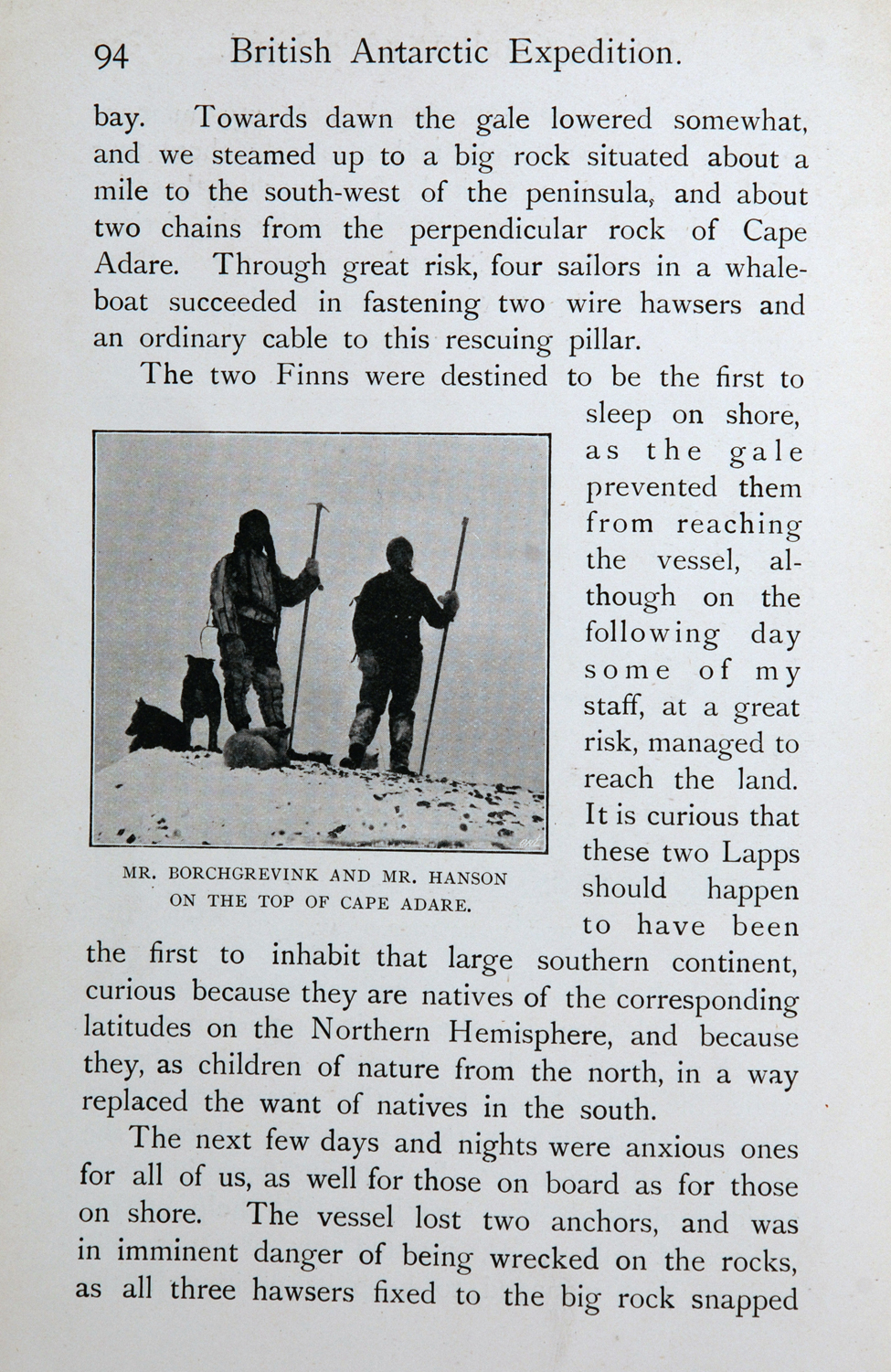Case 4
- Early Port Chalmers connection

C. W. Purnell. ‘On Antarctic Exploration’ in Transactions and Proceedings of the New Zealand Institute 1878 Vol. XI, edited by James Hector. Wellington: Lyon & Blair, Printers, Lambton Quay, May 1879.
Despite New Zealand’s proximity to Antarctica, there appeared little interest on the part of the colonial government in mounting or supporting expeditions to the far south. One of the earliest New Zealand proponents of Antarctic exploration was the barrister and author Charles William Purnell (1843–1926). On 14 May 1878, Purnell delivered a speech before the Otago Institute that called for a joint Australian-New Zealand expedition. After outlining what was known about the Antarctic, and summarising the area’s potential for scientific research, Purnell informed the Institute’s members that he believed:
‘The physical characteristics of New Zealand have virtually shut its settlers out from the field of geographical exploration, so far as the country itself is concerned; but, on the other hand, it is the most convenient base for operations in the noble area of research which lies open for our enterprise in the South Polar Seas. No real obstacle stands in the way’.
It seems, however, obstacles, whether financial or political, did stand in the way. No such joint expedition was launched. Purnell’s call for New Zealand involvement in Antarctic exploration was not realised until the 1890s.

C. W. Purnell. ‘On Antarctic Exploration’ in Transactions and Proceedings of the New Zealand Institute 1878 Vol. XI, edited by James Hector. Wellington: Lyon & Blair, Printers, Lambton Quay, May 1879.
Open image in new window

H. J. Bull. The Cruise of the ‘Antarctic’ to the South Polar Regions. London: Edward Arnold, 1896.
Though the Antarctic mainland was discovered in 1820, and stretches of its coast surveyed, no explorer had set foot on the continent until the 1890s. The first group to claim do so was a five-man party aboard the aptly-named ship Antarctic, which sailed from Port Chalmers in November 1894. The group consisted of the shipping magnate Henryk Bull (1844–1930), who financed the expedition, the naturalist Carstens Borchgrevink (1864–1934) and three crew members, including 17-year-old seaman Alexander von Tunzlemann (1877–1957) from New Zealand.
It was a stroke of bad luck that earned Port Chalmers the honour of being the port from which sailed Bull and his party. Seven months after departing from Melbourne, the Antarctic’s propeller was badly damaged and the whaler called into Port Chalmers for repairs. The incident became a boon for the town, since the Antarctic’s departure from Port Chalmers literally launched its connection with the exploration of the Antarctic.

H. J. Bull. The Cruise of the ‘Antarctic’ to the South Polar Regions. London: Edward Arnold, 1896.
Open image in new window

C. E. Borchgrevink. First on the Antarctic Continent: Being an Account of the British Antarctic Expedition 1898–1900. London: George Newnes, Limited, 1901.
Port Chalmers also played a role in Borchgrevink’s second Antarctic voyage, when his ship, the Southern Cross, arrived in port in March 1899 battered by the southern ice. The crew stayed for twenty-one days while repairs were made and a fresh coat of paint applied. Once again ship-shape, the Southern Cross departed for Bluff before returning to the Antarctic. The American explorer Richard E. Byrd (1888–1957) wrote that Borchgrevink’s two expeditions had opened ‘the Age of Heroic Discovery’, and Port Chalmers was identified ‘as a port of refuge and supply for explorers seeking the South Pole through the Ross Sea’ (Church 12).
Ian Church. Last Port to Antarctica: Dunedin and Port Chalmers: 100 years of Polar Service. Dunedin: Otago Heritage Books, 1997.

C. E. Borchgrevink. First on the Antarctic Continent: Being an Account of the British Antarctic Expedition 1898–1900. London: George Newnes, Limited, 1901.
Open image in new window



